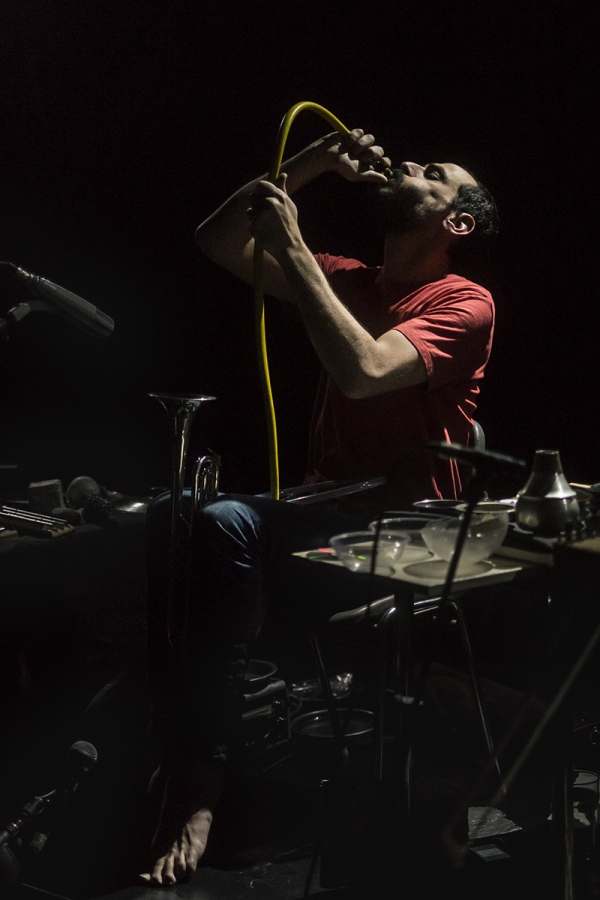.jpg)
After her family attempts to sell her into marriage, a young Afghan
refugee in Iran channels her frustrations and seizes her destiny
through music. Grabbing the mic, she spits fiery rhymes in the face
of oppressive traditions.
Watch trailer.
The couple behind shared projects including The Hunter Gracchus and
Singing Knives Records and individual projects such as Roman Nose,
Blue Yodel and Papal Bull, Fiona Kennedy and Jon Marshall’s duo work
draws on their professional and personal experiences of mental
health as manifested in the individual and the family and set
against contemporary depoliticised, pathologizing and commodified
interventions, playing with disrupted sound localization and
attempts to determine and categorise acousmatic and visualised sound
sources.
http://singingknivesrecords.co.uk/
Ji Youn Kang plays with two customized bamboos and a kkwaenggwari, with analog devices that connect the instruments for further real-time processing. She uses the voltage flow between her body, a self-built generator, the bamboo sticks and an extra synth, until they become strongly linked together. The kkwaenggwari provides rhythmical ritual flow created by feedback system equipped hidden, and takes over the gesture from the bamboos, expanding its rhythmic worlds outwards, until the whole space becomes a part of the resonating body, singing and breathing together with the instruments’ stubborn struggling voices.
Ji Youn Kang is a Korean composer, performer and sound artist based
in The Hague. Most of her music pieces have been composed based on
the rites of Korean Shamanism, and many of them were written for
Wave Field Synthesis System, exploring the relationship between
musical and physical spaces. She is also active as a solo performer
seeking for the ways to combine three different sound areas on
stage; acoustic instruments, analog and digital sound with DIY
analog synthesizers and live processing on laptop. Currently she is
teaching at the Institute of Sonology in Koninklijk Conservatorium.
http://www.jiyounkang.com/
Playing in solo has always been an important part of Mazen Kerbaj’s musical journey; it is in this bare-bones setup that he can experiment the most with his instrument, pushing it beyond any recognition. His use of various every-day objects (tubes, plastic bowls, balloons, aluminium foil…) to “prepare” the trumpet, and his unique playing techniques allow him to create raw soundscapes that sound sometimes like electronics (he himself describes his playing as “electronic music, played acoustically”), especially when he plays several continuous layers of sound at the same time on an instrument that is not designed for that.

Mazen Kerbaj is a Lebanese comics author, visual artist, and
musician born in Beirut in 1975. He also works on selective
illustration and design projects and has taught at the American
University of Beirut. Kerbaj is the author of 15 books translated
into more than ten languages and his work has been shown in
galleries, museums and art fairs around the world. Mazen Kerbaj is
widely considered as one of the initiators and key players of the
Lebanese free improvisation and experimental music scene. As a
trumpet player, he pushes the boundaries of the instrument beyond
recognition.
Photo credit: Micke Keysendal
https://mazenkerbaj.com/

